Thursday 22 June (day 1)
Welcome

Olympia Bekou is Professor of Public International Law and Head of the School of Law at the University of Nottingham. A qualified lawyer, she specialises in international criminal law. Olympia has undertaken numerous capacity-building missions, including in post-conflict situations (such as Colombia, the DRC, Liberia, Sierra Leone and Uganda), has provided legislation drafting assistance to Samoa (with legislation enacted in November 2007) and Jamaica, and has been involved in training the Thai judiciary. She is Deputy Director of the Case Matrix Network, a member of the Advisory Board of the Centre for International Law Research and Policy (CILRAP), and Editor of the Torkel Opsahl Academic EPublisher (TOAEP). She is also a member of the Executive Board of Civitas Maxima. Olympia is responsible for the National Implementing Legislation Database (NILD) of the ICC Legal Tools Project, the creator of the Cooperation and Judicial Assistance Database (CJAD), and has taught extensively worldwide. In 2014, she was awarded the University of Nottingham Knowledge Exchange and Innovation Award for Societal Impact in Social Sciences for her work and in 2015-2016 she was recognised as an Impact Leader as part of ESRC’s impact leaders programme.
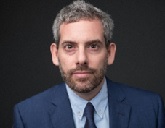
Victor Kattan is a Senior Research Fellow at the University of Nottingham School of Law where he is writing a book on apartheid as a crime against humanity. He was previously awarded consecutive postdoctoral awards and competitive fellowships at the National University of Singapore (2013-2020). Victor is a member of the Editorial Board of The Asian Journal of International Law and is Area Editor for the Middle East and Islam for Oxford Bibliographies of International Law. He was awarded the inaugural Asian Society of International Law Younger Scholar Prize for his article “Decolonizing the International Court of Justice: The Experience of Judge Sir Muhammed Zafrulla Khan in the South West Africa Cases”. Victor’s forthcoming publications include an edited book authored with Brian Cuddy, titled Making Endless War: The Vietnam and Arab-Israeli Conflicts in the History of International Law that will be published in the Law, Meaning, and Violence Series by Michigan University Press in August 2023; and another edited book with Amit Ranjan titled The Breakup of India and Palestine: The Causes and Legacies of Partition that will be published in Manchester University Press’s Studies in Imperialism in July 2023. Victor has also published op-eds in major newspaper such as Ha'aretz, The South China Morning Post, The Straits Times, The Guardian, The LA Times, and Arab News. He has appeared on television, including ABC, Al Jazeera, Bloomberg, the BBC, Channel News Asia, CNBC Asia, and CNN.
Opening keynote
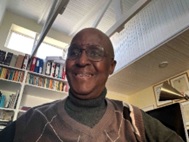
Nyameko Barney Pityana is a lawyer, theologian, and notable human rights academic and activist. He was one of the founding members of the South African Students’ Organisation (SASO) of the Black Consciousness Movement with Steve Biko and Harry Ranwedzi Nenwekhulu. He was also a member of the African National Congress Youth League. An admitted Attorney, Pityana was appointed Chairperson of the South African Human Rights Commission (1995-2001), and a member of the African Commission on Human and Peoples’ Rights (1997-2003). Pityana has degrees in law from the University of South Africa, and Theology from King's College London and the University of Cape Town where he obtained a PhD in Religious Studies. He trained for the Anglican ministry in Oxford and served in parishes in the Church of England before moving to Geneva in 1988. In 2006 President Thabo Mbeki awarded him the Grand Counsellor of the Baobab (GCOB) in that year’s Presidential Honours List. An ordained Anglican priest, in 2011 Pityana was made a Provincial Canon of the Anglican Church of Southern Africa.
Panel 1: Reflections on histories of apartheid in South Africa
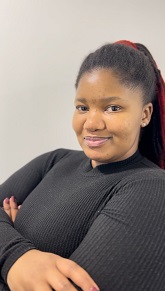
Zinhle Koza is a Doctoral Researcher at the University of Nottingham, School of Law. Her research is funded by the Emma Smith Scholarship which is a fund that recognises top-performing students resident in eThekwini (Durban, South Africa). She holds a Bachelor of Laws degree (LLB) and a Master of Laws (LLM) in Constitutional Law, Litigation and Theory from the University of KwaZulu-Natal. Whilst studying for her LLM, Zinhle served as an intern for the Department of Cooperative Governance and Traditional Affairs (COGTA). In this role, she worked closely with Deputy Directors and Assistant Directors to assess the appointment of senior managers, implement National Gender Policy Frameworks, and monitor the annual submission of statutory information in municipalities across KwaZulu-Natal. Prior to this, she worked as a Graduate Teaching Assistant and Student Consultant at the University of KwaZulu-Natal, School of Law. She served as a Moot Court Judge for final law students and taught several modules inter alia: Human rights law, Family law and Legal studies. She also served as a Moot Court Judge for the UKZN Moot Society on a voluntary basis. At the University of Nottingham, Zinhle is currently in the second year of her PhD. She is serving as a Course Representative to her PhD cohort and represents them in the School's Learning Community Forum. She is also a member of the Economic and Social Rights Unit as well as the International Criminal Justice Unit of the University of Nottingham Human Rights Law Centre.

Thula Simpson is Associate Professor of History in the Department of Historical and Heritage Studies at the University of Pretoria. He obtained his BA Honours at King's College, University of London, and his DPhil at Birkbeck, University of London. His articles have appeared in a number of leading subject journals including the African Historical Review, the Journal of Southern African Studies, Social Dynamics, and the South African Historical Journal. He is the author of Umkhonto we Sizwe: The ANC's Armed Struggle (Penguin, 2016), History of South Africa: From 1902 to the Present (Penguin, 2021), and is the editor of The ANC and the Liberation Struggle: Essential Writings (Routledge, 2017), and, most recently, History beyond Apartheid: New Approaches in South African Historiograpy (Manchester University Press, 2023). His current research on the history of African empires is supported by the National Institute for the Humanities and Social Sciences (NIHSS) and the National Research Fund (NRF) in South Africa.
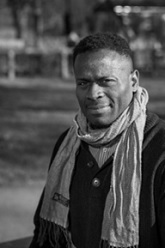
Onyeka Nubia is a pioneering and internationally recognised historian, writer and presenter who is reinventing our perceptions of the Renaissance, British history, Black Studies and intersectionalism. Onyeka is the leading historian on the status and origins of Africans in pre-colonial England from antiquity to 1603. He has developed entirely new strands of British history which includes Africans in Ancient and Medieval England. Onyeka is also an expert on diversity in Tudor, Stuart, Georgian and Edwardian England/Britain. He has helped academia and the general public to understand an entirely new perspective on otherness, colonialism, imperialism and the Black British contribution to World Wars I and II. Although Onyeka began his research on contemporary British history, he is also an authority on anti-colonial movements and Pan Africanism. Onyeka is a Visiting Research Fellow at Edgehill and Huddersfield Universities and the Director of Studies at Narrative Eye. He is the recipient of numerous prizes and awards. He has written over forty articles on Englishness, Britishness and historical method. These have appeared in the most popular UK historical magazines and periodicals including History Today and BBC History Magazine. Onyeka has been a keynote presenter at venues such as the Houses of Parliament, the National Portrait Gallery, and the National Portrait Gallery of Scotland. He has also been a keynote speaker at universities in the UK and the USA. Onyeka has been a consultant and presenter for television programmes including the BBC's History Cold Case Episode 1, Series 1 the "Ipswich Man" and Channel 4's "Skeletons of the Mary Rose;" and "Crossrail Discovery: London's Lost Graveyard."
William Beinart is emeritus professor at St Antony’s College and the African Studies Centre, University of Oxford. He served as chair of the Board of the Journal of Southern African Studies, Director of the African Studies Centre, and President of the ASAUK. In 2009 he was elected to the British Academy. His publications include Twentieth-Century South Africa (2001), The Rise of Conservation in South Africa (2003), Environment and Empire (2007, with Lotte Hughes); Prickly Pear (2011 with Luvuyo Wotshela), African Local Knowledge (2013 with Karen Brown), South Africa 1948-1994: from Apartheid State to Rainbow Nation (A-level text book with Ed Teversham); Rights to Land (2017 with Peter Delius and Michelle Hay); The Scientific Imagination in South Africa, 1700 to the Present (2021 with Saul Dubow); Land, Law and Chiefs (co-edited, 2021).
Rachel Johnson is a historian of modern South Africa with interests in gender, youth, the liberation movement, and the ‘transition’ to democracy. She has written about young women in Drum magazine, newspaper reportage of June 16 commemorations, the gendered transformations of South Africa’s Parliament, and the establishment of the Constitutional Court after 1994. She is currently finishing up a book, Women's Voices and Historical Silences in South Africa: Young Women and Youth Activism in the Anti-Apartheid Struggle that will be published in the New Historical Perspectives series, University of London Press. She is Assistant Professor in (African) History at Durham University.
Panel 2: Apartheid, race, and racism

Thamil Venthan Ananthavinayagan, LLM. (Maastricht University), PhD (University of Galway) has been a teaching associate in Human Rights Law at the University of Nottingham since February 2021. Prior to this position he was a senior lecturer between 2017-2021 at all major Dublin universities for international law, international humanitarian law, and international criminal law. He previously worked as a fellow and research assistant to the Irish Centre for Human Rights in Galway, Ireland. There, his doctoral thesis was supervised from 2013-2015 by the then Director of the Centre, Prof. Michael O'Flaherty (now Director of the Fundamental Rights Agency of the EU) and by Prof Shane Darcy, Deputy Director of the Irish Centre for Human Rights. His doctoral research focused on the engagement of Sri Lanka with the United Nations human rights machinery. Before he worked at the Irish Centre for Human Rights, Thamil studied law at the universities of Bonn and Marburg (Germany). Subsequently, he worked at different research institutions such as the Friedrich Ebert Foundation. He worked at the State Parliament of North Rhine-Westphalia in Düsseldorf and for the former German Health Minister in Berlin. Finally, Thamil was legal counsel for the German Social Democratic Party (SPD) and worked as a junior lawyer for the tenants' association in Bonn, Germany. His research interests are rooted in critical approaches to human rights from the Third World Approaches to International Law (TWAIL) and critical investigations of the United Nations human rights regime.
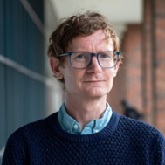
David Keane is Assistant Professor in Law at the School of Law and Government, Dublin City University. He has acted previously as Lecturer in Law at Brunel University, London, and Associate Professor in Law at Middlesex University, London. He holds a BCL (Law and French) from University College Cork, Ireland, and an LLM and PhD from the Irish Centre for Human Rights, NUI Galway, where he was awarded a Government of Ireland scholarship. Dr. Keane's research is in international human rights law, with a particular focus on the International Convention on the Elimination of Racial Discrimination (ICERD) and related aspects of the UN human rights system. He has published 4 books and around 30 journal articles and book chapters, as well as book reviews, blogs and case commentaries. His book Caste-based Discrimination in International Human Rights Law (Routledge, 2007) was awarded the Hart-SLSA Book Prize for Early Career Academics and has been widely cited, including by the UK Supreme Court. His co-edited book 50 Years of the International Convention on the Elimination of Racial Discrimination (Manchester University Press, 2017) is the first edited collection on ICERD. His most recent work is on inter-State cases under ICERD, with his latest co-authored article published in the specialist journal The Law & Practice of International Courts and Tribunals. Dr Keane acts also as a visiting professor at the University of Bordeaux, France.

Noura Erakat is Associate Professor of Africana Studies at the Program of Criminal Justice at Rutgers University, New Brunswick, and a human rights attorney. She recently completed a non-resident fellowship with the Religious Literacy Project at Harvard Divinity School. Noura is the author of Justice for Some: Law and the Question of Palestine (Stanford University Press, 2019), which received the Palestine Book Award and the Bronze Medal for the Independent Publishers Book Award in Current Events/Foreign Affairs. She is co-founding editor of Jadaliyya and editorial board member of the Journal of Palestine Studies as well as Human Geography. She is a co-founding board member of the DC Palestinian Film and Arts Festival. She has served as Legal Counsel for a Congressional Subcommittee in the US House of Representatives, as Legal Advocate for the Badil Resource Center for Palestinian Refugee and Residency Rights, and as National Organizer and Legal Advocate of the US Campaign for Palestinian Rights. Noura has also produced video documentaries, including "Gaza in Context" and "Black Palestinian Solidarity.” Her writings have appeared in The Washington Post, The New York Times, the Los Angeles Review of Books, The Nation, and Al Jazeera. She is a frequent commentator on CBS News, CNN, MSNBC, CBS, Fox News, the BBC, and NPR, among others.
Carola Lingaas is an Associate Professor of Law at VID Specialized University (Oslo, Norway). Her research interests are in international criminal law, human rights law, and indigenous rights. Apart from numerous book chapters and journal articles, she published the monograph The Concept of Race in International Criminal Law (Routledge 2019). She was educated at the University of Zurich (MA) and Oslo (LLM and PhD). Prior to joining academia, Carola worked for several years in the Red Cross (ICRC South Sudan and Norwegian Red Cross).
Panel 3: Forms of apartheid

Dirk van Zyl Smit is Emeritus Professor of Comparative and International Penal Law of the University of Nottingham, and formerly Head of the School of Law, from which he retired at the end of July 2020. He is also Emeritus Professor of Criminology at the University of Cape Town, where he had been Dean of the Faculty of Law from 1990 to 1995. He has been a visiting professor at the Humboldt University in Berlin and the Catholic University of Leuven, and a Senior Fulbright Research Fellow and later a visiting Global Professor at New York University School of Law in 2012 and 2017. Dirk’s books include Life Imprisonment: A Global Human Rights Analysis (with Catherine Appleton) (Harvard 2019), which in 2020 received the European Society of Criminology Book Award and the Outstanding Book Award of the Division of International Criminology of the American Society of Criminology, and Principles of European Prison Law and Policy: Penology and Human Rights (with Sonja Snacken) (Oxford 2009). He is co-editor of Punishment and Society and the author of more than 140 academic articles, books, and book chapters. Dirk is actively involved in law reform. In South Africa he was the primary consultant for the Correctional Services Act 1998 and a member of the National Council on Correctional Services from 1995 to 2004. For the United Nations Office on Drugs and Crime he has drafted Handbooks on Alternatives to Imprisonment, International Transfer of Sentenced Persons and Incorporating the Nelson Mandela Rules into National Prison Legislation: A Model Prison Act and a Commentary. He was chair of the Board of Penal Reform International until November 2021.

Catherine Besteman is an abolitionist educator at Colby College. Her current research and practice explore abolitionist possibilities in Maine. In addition to coordinating the public humanities initiative Freedom & Captivity, on abolitionist visioning in Maine, she has researched and published on security, militarism, displacement, inequality, racism, and community-based activism with a focus on Somalia, post-apartheid South Africa, and the U.S. Her most recent book, Militarized Global Apartheid (Duke University Press, 2020), argues that South Africa's apartheid system is being reproduced on a worldwide scale to control the mobility and labor of people from the global south for the benefit of countries and corporations based in the global north. The book traces how militarization and securitization reconfigure older forms of white supremacy and deploy them in new contexts to maintain this racialized global order. Besteman has published eight other books and received recent fellowships from the American Council of Learned Societies and the Guggenheim and Rockefeller Foundations.

Penelope Andrews joined New York Law School in January 2019 and teaches constitutional law, torts, professional responsibility, and race and the law. She is also Director of NYLS’s Racial Justice Project. Professor Andrews began her teaching career at Australia’s La Trobe University, where she taught for eight years, before moving to the City University of New York School of Law, where she taught public international law, gender and law, race and law, comparative law, and torts for 15 years. She has held visiting appointments at law schools across the U.S. and internationally and senior leadership posts, including serving as the first black Dean at the University of Cape Town Faculty of Law (2016–2018) and the first female Dean and President of Albany Law School (2012–2015). She’s authored several books and articles focusing on comparative constitutional law, gender and racial equality, human rights, the judiciary, and legal education. She is working on a manuscript, Law, Politics and the #MeToo Movement (forthcoming 2023). Professor Andrews’ focus on the judiciary in South Africa seeks to bridge the divide between theory and practice. Her writing explores the transformation of the judiciary, particularly the appointment of female judges. She was a trainer with Judicial Institute for Africa, specializing in judicial opinion writing and communications skills. She also served as an Acting Judge of the North Gauteng High Court in Pretoria for the 2018 third term and as an arbitrator in racial discrimination hearings in South Africa.

Balakrishnan Rajagopal assumed his function as Special Rapporteur on adequate housing as a component of the right to an adequate standard of living, and on the right to non-discrimination in this context, on 1 May 2020. He is Professor of Law and Development at the Department of Urban Studies and Planning at the Massachusetts Institute of Technology (MIT). A lawyer by training, he is an expert on many areas of human rights, including economic, social, and cultural rights, the UN system, and the human rights challenges posed by development activities. Professor Rajagopal has published numerous scholarly articles, and book chapters and is the author/editor of three books. He has also led or contributed to field and research reports on evictions, displacement, housing and related human rights and development policy issues. He has published widely in the media on human rights, international law and issues concerning the Global South including in The Boston Globe, The Hindu, The Wire, Washington Post, the Indian Express, El Universal, The Nation, and the Huffingtonpost.com.

Urmila Bhoola is an international human rights lawyer who practised as an Attorney in South Africa for twenty years. She was the Chief Legal Drafter of South Africa's Employment Equity Act of 1998, which was designed to redress racial disadvantage caused by the Apartheid system. Urmila was appointed to the Labour Court of South Africa in 2008 and served as a judge for five years until her appointment as Executive Director of International Women Rights Action Watch for the Asia Pacific. In 2014 she was appointed by the United Nations Human Rights Council as Special Rapporteur on Contemporary Forms of Slavery, its causes and consequences, a role in which she served for six years. She also served as an Acting Judge of the High Court of South Africa from 2018-2020. She currently serves on numerous boards, including the advisory board of the Coretta and Martin King Institute, Norway. She is currently Principal Research Fellow in Global Anti-slavery Justice at the Rights Lab, University of Nottingham, as well as Honorary Visiting Professor at University College London. Her current research focuses on law and policy strategies to end labour exploitation of women workers in South and Southeast Asia, as well access to justice for survivors of gender-based violence in South Africa.
Friday 23 June (day 2)
Panel 1: Reflections on the law of apartheid

Dino Kritsiotis is Professor of Public International Law at the University of Nottingham, where he is Co-Director of the Nottingham International Law & Security Centre (NILSC) as well as the founding Head of the International Humanitarian Law Unit (which was established in November 2012). Professor Kritsiotis specializes in public international law on the use of force and armed conflict, as well as the history and theory of the discipline, and is widely published in these fields. Most recently, he has co-edited Conceptual and Contextual Perspectives on the Modern Law of Treaties (Cambridge University Press, 2018) and is the author of the forthcoming “Intervention and the Problematisation of Consent” for Cambridge University Press (which forms part of the third trialogue convened by the Max Planck Institute for Comparative Public Law and International Law in Heidelberg, Germany). He has taught at numerous law schools internationally, including the University of Melbourne, the University of Auckland, and the University of Hong Kong, and is a founding convenor of the Annual Junior Faculty Forum for International Law.
Kate O’Regan is the inaugural Director of the Bonavero Institute of Human Rights in the Faculty of Law at the University of Oxford. Previously she served as one of the first judges of the Constitutional Court of South Africa (from 1994 – 2009) and as an ad hoc judge of the Supreme Court of Namibia (from 2010 – 2016). She has served (and continues to serve) as a judge on several international tribunals and on the boards of NGOs working in the fields of democracy, the rule of law, human rights and equality. Her research is in the fields of comparative constitutional law and comparative human law. In November 2022, she delivered the Hamlyn Lectures 2022, ‘Courts and the Body Politic.’ Since November 2020, she has been one of the first members of the Oversight Board Trust, an independent trust established to administer and support the independent Oversight Board, a body empowered to review, and if appropriate, overturn some of Facebook’s content decisions.
John Dugard is a south African lawyer who lives in the Netherlands. For many years he was Professor of Law at the University of the Witwatersrand and Director of the Centre for Applied Legal Studies at that university. From 1995 to 1997, John was Director of the Lauterpacht Centre for International Law, Cambridge, and from 1998 to 2006 he was Professor of International Law at the University of Leiden. John is a former member of the International Law Commission and Judge ad hoc of the International Court of Justice. John has chaired two International Commissions of Enquiry into violations of human rights and international humanitarian law in occupied Palestine. From 2001 to 2008, John was UN Special Rapporteur on the human rights situation in the occupied Palestinian territory and has written extensively on apartheid in South Africa, Namibia, and Palestine, most recently in his memoir Confronting Apartheid (2018).

David Dyzenhaus is a University Professor of Law and Philosophy at the University of Toronto, and a Fellow of the Royal Society of Canada and the British Academy. In 2014-15, he was Arthur Goodhart Visiting Professor of Legal Science in the University of Cambridge, in 2017-18; a Fellow at the Wissenschaftskolleg zu Berlin, in 2019-20; a Guggenheim Fellow, and a Visiting Fellow of All Souls College, Oxford. He is the author of: Hard Cases in Wicked Legal Systems: South African Law in the Perspective of Legal Philosophy (Oxford, now in its second edition); The Constitution of Law: Legality in a Time of Emergency (Cambridge); Legality and Legitimacy: Carl Schmitt, Hans Kelsen, and Hermann Heller in Weimar (Oxford); Judging the Judges, Judging Ourselves: Truth, Reconciliation and the Apartheid Legal Order (Hart) and The Long Arc of Legality: Hobbes, Kelsen, Hart (Cambridge). He is editor of the University of Toronto Law Journal and co-editor of the series Cambridge Studies in Constitutional Law. His current project examines how the ‘politics of legal space’ both enables and makes morally fraught human rights lawyering.
Panel 2: Apartheid as a Crime against Humanity
Mia Swart is a Visiting Professor at the Wits Law School in Johannesburg. She writes on international crimes, transitional justice, and human rights. She previously worked as a producer at Al Jazeera Media Network and as Professor at the University of Johannesburg. She has consulted for UNDP in Palestine and Amnesty International in Southern Africa. She interned in the Research Department of the South African Truth and Reconciliation Commission in 1996.
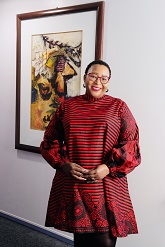
Ntombizozuko “Zozo” Dyani-Mhango holds LL.B and LL.M degrees from the University of the Western Cape, South Africa, and an SJD degree from the University of Wisconsin-Madison, USA. She is a Full Professor and Head of the Department of Public Law at the Faculty of Law of the University of Pretoria. She has been an academic for 18 years. She has taught and continues to teach courses and supervises students in public international law, international criminal law, and constitutional law. She clerked for the former Chief Justice Sandile Ngcobo of the Constitutional Court of South Africa and was an intern in the Chambers Section at the International Criminal Tribunal for Rwanda. Zozo is the National Research Foundation of South Africa established researcher. She is an inaugural fellow of the Pan African Scientific Research Council and a member of the African Society of International Law. She is a Managing Editor for the South African Chapter – International Association of Women Judges Law Journal, and a member of the Editorial Committee of the Comparative & International Law Journal of Southern Africa. She has contributed to and co-edited with E Lubaale a book titled National Accountability for International Crimes in Africa (Palgrave McMillan 2022). She is a regular commentator on contemporary constitutional issues in the media.
Gerhard Kemp is Professor of Criminal Law at UWE Bristol Law School. He has published widely in the areas of criminal law, transitional justice, and international criminal law. Some recent publications include: “The Crime of Apartheid”, in: S Sayapin, R Atadjanov, U Kadam, G Kemp, N Zambrana-Tévar, N Quénivet (eds) International Conflict and Security Law – A Research Handbook (2022) Springer. The Hague; “Valuating international criminal law and transitional justice: A South African perspective”, in: Jessberger, F, Vormbaum, M, & Burghardt, B (eds) Strafrecht und Systemunrecht – Festschrift für Gerhard Werle (2022) Mohr Siebeck: Tübingen; “Was quashing the Maji-Maji Uprising genocide? An evaluation of Germany’s conduct through the lens of International Criminal Law” (2021) 2 Holocaust and Genocide Studies 235-249 (with K Bachmann).
Panel 3: Apartheid beyond South Africa: Palestine and the United States of America (Black Lives Matter)

Matthew Windsor is Associate Professor in Public International Law at the University of Nottingham School of Law. Matthew’s research interests are in the fields of public international law, international trade and investment law, law and political economy, and law and the humanities. He has published in a number of leading journals, including the Leiden Journal of International Law and the British Yearbook of International Law, and co-edited Interpretation in International Law (OUP 2015). He is currently writing a monograph titled Advising States, under contract with OUP, which offers a conceptual framework to evaluate and critique the practice of government legal advisers in international law. Matthew holds a BA/LLB(Hons) from the University of Auckland, an LLM from Columbia University, and a PhD from the University of Cambridge. Before joining the University of Nottingham, Matthew was a Junior Research Fellow in International Law at the University of Oxford and an Assistant Professor at the University of Reading. Prior to entering academia, Matthew was a litigation associate at the Open Society Justice Initiative in New York City, as the recipient of Columbia Law School’s David W Leebron Human Rights Fellowship, and a judge’s clerk at the Court of Appeal of New Zealand.
Russell Rickford is an associate professor of history at Cornell University. He specializes in African American political culture after World War Two, the Black radical tradition, and transnational social movements. His current book, We Are an African People: Independent Education, Black Power, and the Radical Imagination, received the Liberty Legacy Award from the Organization of American Historians. He is currently working on a book about Guyana and African American radical politics in the 1970s. Rickford’s scholarly articles have appeared in Journal of American History, Journal of African American History, Souls, New Labor Review, the Journal of Palestine Studies, and other publications. His popular writing has appeared in publications such as In These Times, Truthout, Washington Post, Counterpunch, Black Agenda Report and Africa is a Country. Rickford holds a bachelor’s from Howard University and a doctorate from Columbia University. Born in Guyana, he lives in Ithaca, New York.

Robyn C. Spencer-Antoine is a historian whose teaching and research explores Black social protest after World War II, urban and working-class radicalism, and gender. Her book The Revolution Has Come: Black Power, Gender, and the Black Panther Party in Oakland was published in 2016. She is co-founder of the Intersectional Black Panther Party History Project and has written widely on gender and Black Power. Her writings have appeared in the Journal of Women’s History and Souls as well as The Washington Post, Vibe Magazine, Colorlines, and Truthout. She has received awards for her work from the Mellon foundation, the American Council of Learned Societies, and the Association of Black Women Historians. Her latest work focuses on the intersections between the movement for Black liberation and the movement against the US war in Vietnam. In addition, she is working on a biography of Pat Murphy Robinson, a Marxist therapist who worked as a counselor and organizer, who transformed the Black freedom movement. www.robyncspencer.com

Francesca Albanese is an international lawyer and Affiliate Scholar at the Institute for the Study of International Migration at Georgetown University. Her research and teaching centres on forced displacement and the nexus between laws, politics, and humanitarianism in shaping protection responses. She has published widely on the legal situation in Israel/Palestine; her book, Palestinian Refugees in International Law (Oxford University Press, 2020) is regarded as a landmark in the literature concerning Palestinian refugees. She is also a Senior Advisor on Migration and Forced Displacement for the think tank Arab Renaissance for Democracy and Development (ARDD), where in 2018 she co-founded the Global Network on the Question of Palestine (GNQP), a coalition of renowned professional and scholars engaged in/on Israel/Palestine. From 2003-2012 she served as a human rights expert and legal advisor to the UN across the Middle East, North Africa, and the Asia Pacific, including the Office of the High Commissioner for Human Rights and the Relief and Work Agency for Palestine Refugees. In May 2022 she was appointed as the Special Rapporteur on the human rights situation in the occupied Palestinian territory, becoming the first woman to hold this position since its creation in 1993. She holds an LLM in Human Rights from the University of London, SOAS and a Law Degree (with honours) from the University of Pisa. She is currently completing her PhD in International Refugee Law at Amsterdam University Law Faculty.

Omar Shakir serves as the Israel and Palestine Director at Human Rights Watch, where he investigates human rights abuses in Israel, the West Bank, and Gaza and has authored several major reports, including a 2021 report comprehensively documenting how Israeli authorities are committing the crimes against humanity of apartheid and persecution against millions of Palestinians. As a result of his advocacy, the Israeli government deported Omar in November 2019. Prior to his current role, he was a Bertha Fellow at the Center for Constitutional Rights, where he focused on US counterterrorism policies, including legal representation of Guantanamo detainees. As the 2013-14 Arthur R. and Barbara D. Finberg Fellow at Human Rights Watch, he investigated human rights violations in Egypt, including the Rab’a massacre, one of the largest killings of protesters in a single day. A former Fulbright Scholar in Syria, Omar holds a JD from Stanford Law School, where he co-authored a report on the civilian consequences of US drone strikes in Pakistan as a part of the International Human Rights & Conflict Resolution Clinic, an MA in Arab Studies from Georgetown University’s School of Foreign Affairs, and a BA in International Relations from Stanford.
Closing keynote

Hassan Jabareen is the founder of Adalah: The Legal Centre for Arab Minority Rights in Israel. He has served as Adalah’s general director and legal director since its establishment in 1996. He holds an LLB in Law and a BA in Philosophy from Tel Aviv University, an LLM in International Human Rights from American University Washington College of Law, and a PhD in Law from the Hebrew University. Over the last 25 years, he has litigated scores of landmark constitutional law cases before the Israeli Supreme Court regarding Palestinian citizens of Israel, including the Palestinian leadership, and international humanitarian law cases concerning Palestinians in the 1967 Occupied Territory. Also, since 1998, he has been an adjunct lecturer for a course that he initiated on the legal status of the Arab minority in Israel and other law courses in the Faculties of Law at Tel Aviv, Hebrew, and Haifa Universities. He has received several awards for outstanding public interest lawyering and top human rights law prizes. He has also published several academic articles in edited books and law reviews on the citizenship status of the Palestinians. Hassan was a Yale World Fellow, a Senior Robina Law Fellow at Yale Law School, and a research fellow at the Wissenschaftskolleg in Berlin.